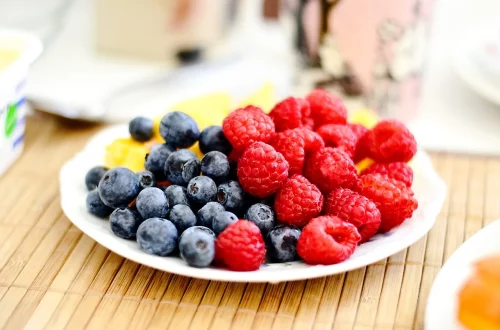
Delicious Dairy Free Protein Bars for a Healthy Snack Option
Eating healthy doesn’t have to be a chore, especially when it comes to snacking. In today’s fast-paced world, many people find themselves reaching for convenience foods that are often high in sugar and low in nutritional value. However, there is a growing awareness of the importance of clean eating, leading to an increased demand for healthier snack alternatives. Among these, protein bars have emerged as a popular choice, offering a convenient way to incorporate essential nutrients into your diet.
For those who are lactose intolerant or choose to avoid dairy products for other reasons, finding a delicious and satisfying protein bar can be a challenge. Fortunately, the market has responded with a variety of dairy-free options that not only taste great but also provide the necessary protein to keep you energized throughout the day. These bars are crafted from wholesome ingredients, often incorporating plant-based proteins, nuts, seeds, and natural sweeteners.
In addition to being nutritious, dairy-free protein bars can cater to a wide range of dietary preferences, making them suitable for vegans, vegetarians, and anyone looking to reduce their dairy intake. With an array of flavors and textures available, there’s something for everyone. This healthy snack option can seamlessly fit into your daily routine, whether you’re hitting the gym, at work, or simply looking for a tasty treat at home.
Benefits of Dairy-Free Protein Bars
Dairy-free protein bars offer several advantages that make them a favorable choice for health-conscious consumers. First and foremost, these bars are typically easier to digest for individuals who are lactose intolerant or have sensitivities to dairy. Consuming dairy can lead to discomfort, bloating, and other digestive issues, which can be avoided by opting for dairy-free alternatives.
Additionally, many dairy-free protein bars are made with natural, whole-food ingredients. This means they often contain fewer additives and preservatives compared to traditional protein bars. Ingredients like nuts, seeds, and plant-based proteins not only provide a wholesome source of nutrition but also deliver healthy fats, fiber, and essential vitamins and minerals that support overall health.
The variety of flavors available in dairy-free protein bars is another significant benefit. From rich chocolate to fruity options, there is an endless array of flavors to satisfy different taste preferences. This diversity makes it easier to maintain a healthy diet without feeling deprived or bored with your snacks. Moreover, many brands focus on using natural sweeteners like dates or maple syrup, which can provide a satisfying sweetness without the spikes in blood sugar associated with refined sugars.
Another advantage is convenience. Dairy-free protein bars are portable and require no preparation, making them an ideal on-the-go snack. Whether you’re heading to work, the gym, or running errands, these bars can easily fit into your bag or lunchbox, providing a quick energy boost when you need it most.
Lastly, incorporating dairy-free protein bars into your diet can help in meeting your protein needs, especially for those following a plant-based diet. Protein is essential for muscle repair, immune function, and overall health. By choosing a protein bar that is rich in plant-based protein sources, such as pea protein or brown rice protein, you can ensure that you’re nourishing your body effectively.
Popular Ingredients in Dairy-Free Protein Bars
When it comes to dairy-free protein bars, the ingredients play a crucial role in determining their nutritional value and taste. Understanding the components of these bars can help consumers make informed choices that align with their health goals.
Common ingredients found in dairy-free protein bars include various types of plant-based proteins. Pea protein is a popular choice due to its high protein content and digestibility. Other sources include rice protein, hemp protein, and soy protein, each offering unique amino acid profiles that contribute to muscle repair and growth.
Nuts and seeds are often included for their healthy fats and crunch. Almonds, cashews, chia seeds, and flaxseeds not only add texture but also provide essential nutrients such as omega-3 fatty acids, fiber, and antioxidants. These ingredients can enhance the overall health benefits of the bars while keeping you full for longer periods.
Natural sweeteners are another key component of dairy-free protein bars. Instead of refined sugars, many brands opt for dates, agave nectar, or maple syrup to provide sweetness. These natural alternatives often come with added fiber and nutrients, making them a healthier choice.
Additionally, many dairy-free protein bars incorporate superfoods to boost their nutritional profile. Ingredients like spirulina, cacao nibs, or acai powder can enhance the antioxidant content and contribute to a healthier snack option. Such additions not only improve the bars’ nutritional value but also introduce unique flavors that can elevate the overall taste experience.
Lastly, some bars may contain binding agents like nut butter or coconut oil. These ingredients help to hold the bar together while also adding flavor and healthy fats. Nut butters, such as almond or peanut butter, are particularly popular for their rich taste and creamy texture, making them a favorite among consumers.
By understanding the ingredients that go into dairy-free protein bars, you can select options that align with your dietary needs and preferences. Always check the label for added sugars and artificial ingredients, ensuring that you choose a bar that is both delicious and nutritious.
How to Make Your Own Dairy-Free Protein Bars
Making your own dairy-free protein bars at home can be a rewarding endeavor, allowing you to customize flavors and ingredients to suit your taste. Plus, it’s often more economical than purchasing pre-made bars. Here’s a simple recipe to get you started.
**Ingredients:**
– 1 cup of rolled oats
– ½ cup of nut butter (such as almond or peanut butter)
– ½ cup of plant-based protein powder
– ¼ cup of maple syrup or agave nectar
– ¼ cup of chopped nuts or seeds (such as almonds or sunflower seeds)
– ¼ cup of dark chocolate chips (dairy-free)
**Instructions:**
1. In a large mixing bowl, combine the rolled oats and plant-based protein powder. Mix well to ensure an even distribution.
2. In a separate bowl, mix the nut butter and maple syrup until smooth. If the mixture is too thick, you can slightly warm it in the microwave to make it easier to combine.
3. Pour the wet mixture into the dry ingredients and stir until everything is well combined. The mixture should be sticky but firm.
4. Fold in the chopped nuts and dark chocolate chips for added texture and flavor.
5. Line an 8×8 inch baking dish with parchment paper, leaving some overhang for easy removal. Press the mixture firmly into the bottom of the dish, spreading it evenly.
6. Refrigerate for at least an hour to allow the bars to set. Once firm, lift them out using the parchment paper and cut into squares or rectangles.
7. Store in an airtight container in the refrigerator for up to a week, or freeze for longer storage.
Creating your own dairy-free protein bars allows you to experiment with flavors and textures. You can add dried fruits, seeds, or different types of nut butters to personalize your bars. This way, you can enjoy a healthy snack that aligns perfectly with your dietary preferences.
In conclusion, dairy-free protein bars offer a delicious and convenient snack option for those looking to maintain a healthy lifestyle. Whether you choose to buy them or make your own, these bars can provide essential nutrients and satisfy your cravings. Always remember to read the labels and choose options that are made with wholesome ingredients.
**Disclaimer:** This article is not intended as medical advice. For any health issues or dietary concerns, please consult with a healthcare professional.




